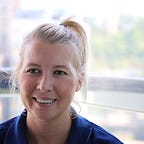Women as a force of change in rural Bangladesh
In one of the most conservative parts of Bangladesh women having been finding their voices and becoming leaders in their community.
In a small village in Cox’s Bazar, a group of women sit in a circle. They’re all wearing pink scarves and listening intently as the group leader discusses best business practices.
These women are all taking part in the World Food Programme’s livelihoods programme which is changing lives in one of the poorest and most conservative parts of Bangladesh.
Among this group is Aysha Begum who cradles her seven-month-old baby. Less than a year ago her life was vastly different. She was working as a cleaner and cook in other people’s houses for very little money.
Her husband didn’t work and would spend his days with friends just “wasting time” as Aysha puts it.
“I wasn’t happy with what he was doing and thought he needed to change for the betterment of our household. Previously he didn’t work but after joining this programme I became more involved in my home and now my husband helps with my catering business by selling the food I make.”
After completing training through the WFP’s livelihoods programme, Aysha became the main income earner in her household. She says this gave her more leverage when it came to making household decisions. Putting power back in the hands of women through income is a key part of the programme in Cox’s Bazar and has been supporting women as they become leaders in their homes and communities.
Historically in this conservative region women have not been allowed out of their homes to earn money. But after receiving a cash grant and training in entrepreneurship from WFP, the community has begun to recognise the benefits of having women as income earners and leaders.
“I feel more empowered,” says Ayesha. “I used to be very shy and scared of my husband’s behaviour but now I’m not. I have money and I am imposing my decisions at the household level.”
It isn’t only entrepreneurial training and cash grants the livelihoods programme provides though. Anuara Begum has completed the training and says it has changed her perspective on parenting, particularly for her daughter.
“Before coming [to the training] my children were not going to school but now my daughter is going to school. She did not go to school because I didn’t know the positive things of education and because I was so poor I could not cope with the expenses, but this programme has taught me why she should go to school.”
Anuara has chosen goat and hen rearing for her business, she has experience in hen rearing but says the training has provided her with the skills and knowledge to do it on a much larger scale. She has become the chief income earner in her household because her husband is a day labourer and his work is unreliable.
“I was only a housewife before joining this programme, now I have started asking my husband for more help around the house though. After six months [of the training] I felt more empowered because I know how to use logic in conversations at the household and community level to make my decisions heard.”
This ripple effect on households and communities is a key part of the livelihoods programme which is changing lives for the current and future generations.
“I hope my daughter has more opportunities in the future,” says Anuara. “Once I receive more money from the business I will be able to provide more food and provide more for the educational expenses.”
WFP’s livelihoods programme in Cox’s Bazar is funded by Australia, Canada, and the United States.
